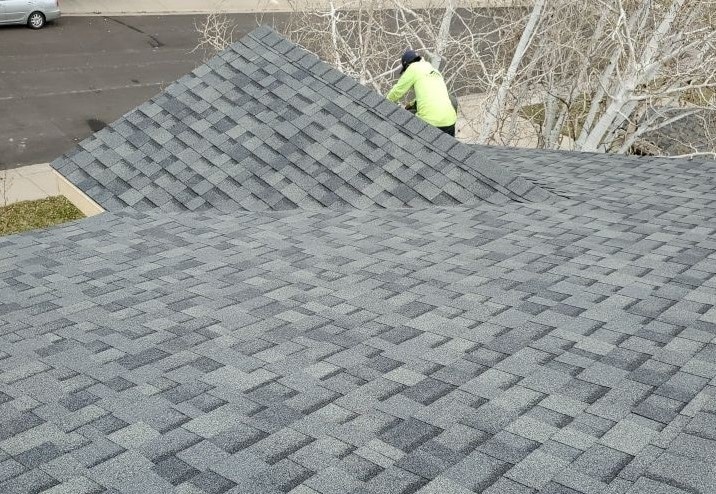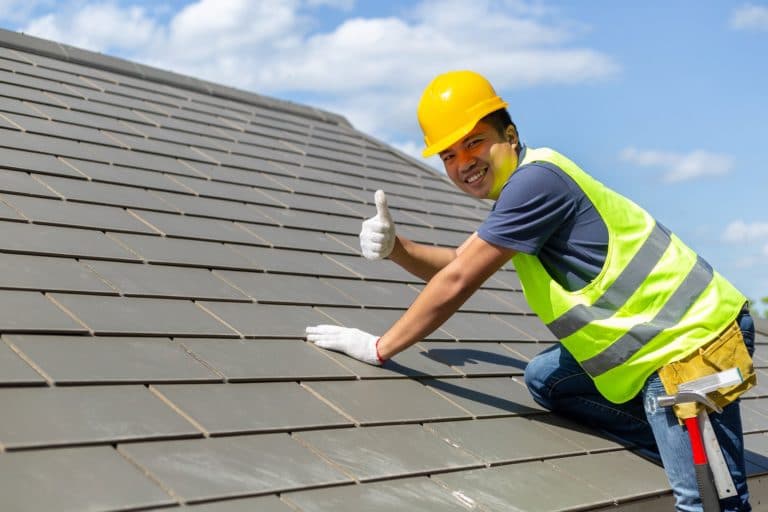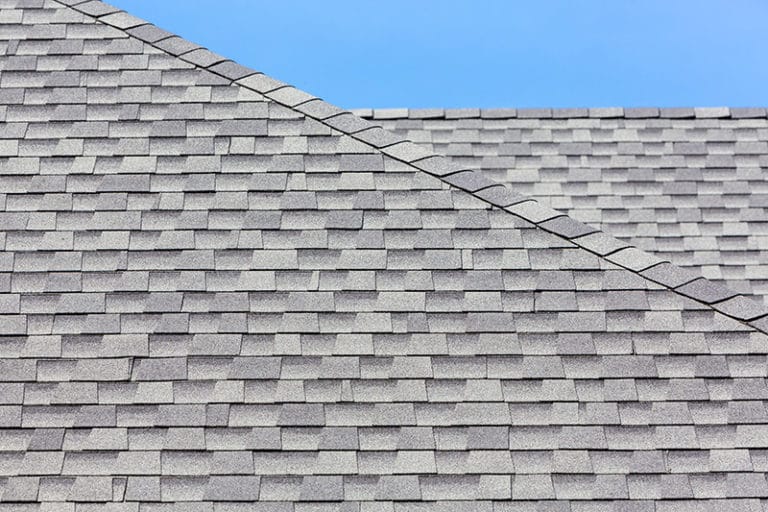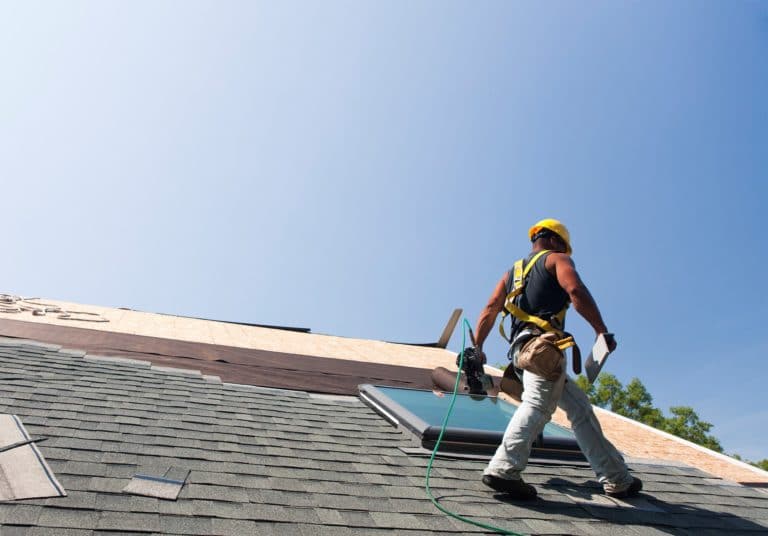When should you replace your roof? In general, roof replacement depends on the kind of material used. The following is a rough guide of when you would need to replace your roof, depending on the roofing material.
- Metal roof – 50 to 75 years
- Rubber roofs – 30 to 50 years
- Wood shingles – 20 to 25 years
- Asphalt shingles – 15 to 30 years
- Composite shingles – 12 to 20 years
The guidelines shown above are rough estimates. Other factors can influence roof replacement like humidity levels, severity of the winter, summer heat, etc. After high winds and rough weather, you should get your roof checked to find out if replacement is necessary.
There are other signs as well that indicate if a roof replacement is due.
Paper Work
Check your paperwork to determine how much time has elapsed since your roof was built. If your roof is older than the warranty provided, then you may want to consult with a roofing professional to assess whether or not a roof replacement is necessary.
Shingles
Take a look at the condition of your shingles. Any sign of warping or distortion indicates that you will have to call in the experts for a professional inspection. You must take a look at your roof after a storm has subsided to catch sight of any possible damage. If you notice any kind of buckling, cracks or similar damage, then repairs are required.
You can also inspect the downspouts and gutters for any signs of shingle granules. If your roof is losing granules, then it may be approaching the end of its lifecycle if it has not already gone beyond it.
Flashing
Check the flashing around chimney seals, skylights and vents after rain, storms and inclement weather. If you notice any kind of damage, then call in the experts. Leakages and damage of any kind will lead to water infiltration, which can damage other parts of your home if not checked in time.
Flashing often comprises of roof tar or cement. Upgrading to metal might improve its durability.
Rot
Check out your roof for signs of rot and algae infestation. If your roof is sagging at any point, you may have to call in the experts quickly before any more expensive damage to the rest of your property takes place. Rotting boards and moisture can lead to greater damage if repairs are not done in time.
Check your roof for fungus and algae. Unwanted houseplants on your roof like algae can eventually damage shingles and are a sign of underlying moisture, which can further harm your roof.
Whenever in doubt, doubt hesitate to call the experts. The right experts can give you good advice and repair damage whenever required. Even if your roof is damaged, it may be possible for roofing experts to repair the damaged part only while sparing the rest of your roof. For that, you will need experts with long experience and proficiency in the field.
Contact us today.




